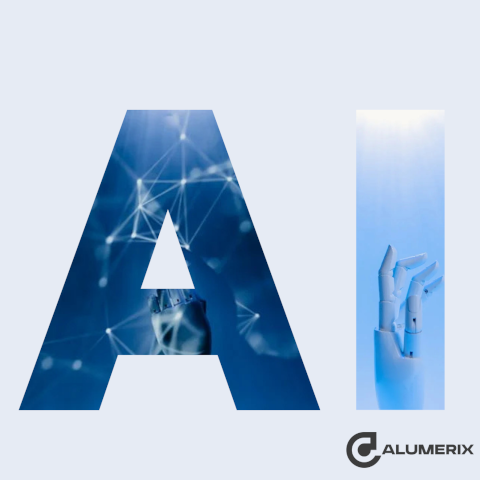Abstract
Agentic AI is revolutionizing project management by introducing autonomous intelligent systems capable of independent decision-making, learning, and adapting in real-time. Unlike traditional automation, agentic AI employs advanced machine learning and natural language processing to proactively identify project risks, predict delays, and suggest solutions- freeing project managers from routine administrative tasks and enabling them to focus on strategic leadership. The adoption of agentic AI requires a shift in mindset and workflows: project managers must start with team training and pilot projects, measure and celebrate early successes, and progressively redesign workflows to fully harness AI’s capabilities. Over time, agentic AI transforms project teams into highly adaptive units, enhancing collaboration, optimizing resource use, and enabling proactive, data-driven decision-making. The article outlines practical steps for gradual AI adoption, highlights leading tools and trends- such as event-driven automation and AI-integrated project management platforms- and emphasizes the need for continuous education to keep pace with evolving technologies. Ultimately, embracing agentic AI positions project managers as strategic innovators, driving transformative change and ensuring sustained project success in a rapidly evolving landscape.
What Exactly is Agentic AI?
Agentic AI involves intelligent systems that make their own decisions without direct instructions from people. Unlike simple automation- which follows set rules- agentic AI learns, adapts, and actively responds to new information and changing situations. It uses advanced technologies like machine learning and natural language processing to understand complicated data, foresee potential challenges, and find effective solutions before a human must step in. For example, in software projects, agentic AI can spot risky coding practices, predict possible delays, and suggest immediate solutions to keep things on track.
How Does Agentic AI Change Project Management?
Agentic AI fundamentally changes the role of project managers, freeing them from administrative tasks and enabling them to focus more on strategic decisions and innovation. With AI’s ability to provide highly accurate project forecasts, managers can better predict project timelines, budgets, and resource needs, significantly reducing uncertainty and surprises. AI continuously learns from past projects, providing managers with critical insights into potential risks or opportunities, enabling them to manage proactively rather than reactively.
Furthermore, agentic AI greatly enhances team collaboration by automatically analyzing team communications and highlighting areas needing improvement. For instance, AI can identify when remote teams are not communicating effectively, then suggest actionable steps to improve coordination and clarity.
Adapting to AI in Project Management
Adapting to agentic AI means actively incorporating these intelligent tools into your work processes rather than simply adding them on top of existing workflows. This transition requires project managers to rethink and reshape their standard practices, making them more dynamic and responsive to changing conditions.
As a consultant, I advise project teams to start small, first implementing AI tools in simpler, routine tasks such as scheduling or basic risk management. Once teams begin to experience the immediate benefits and gain confidence in using AI, they can gradually scale these tools to larger, more complex projects.
Practical Steps for Adopting AI in Your Projects
Short-Term Action Plan:
- Team Training: Start by offering simple, engaging workshops to educate your team about what agentic AI can do and how it can benefit them daily. Explain clearly how AI will simplify their workload and improve their effectiveness. Provide examples specific to your team’s daily tasks to make the training relevant and immediately applicable. Schedule follow-up sessions to address questions and reinforce key points.
- Try Small Pilot Projects: Pick small, easy-to-manage projects to test AI tools like scheduling software or risk management systems. This gives your team hands-on experience without the pressure of larger, critical projects. Ensure these pilot projects clearly demonstrate how AI tools improve efficiency and accuracy. Collect feedback throughout to fine-tune the approach for broader implementation.
- Measure Your Success: Establish clear metrics early on to see exactly how AI tools improve productivity, reduce errors, or save time. Share these results regularly with your team and stakeholders to maintain enthusiasm and support. Celebrate successes to build momentum and encourage widespread adoption. Regularly review these metrics to ensure ongoing alignment with project and organizational goals.
Long-Term Action Plan:
- Rethink Your Workflows: Over time, redesign your project workflows to fully leverage AI’s autonomous capabilities. Transition from fixed, linear processes to more flexible, event-driven workflows, allowing your teams to adapt rapidly to changes. Encourage teams to continuously share feedback on new processes to refine them further. Regularly revisit workflows to integrate new AI developments and insights from ongoing project experiences.
- Continuous Education: Regularly update your team’s knowledge about the latest AI technologies and trends through ongoing training and educational programs. This ensures your teams remain confident and capable as AI technology evolves. Create a culture that values and rewards continuous learning and improvement. Consider establishing an internal knowledge hub or resource center to keep training accessible and engaging.
- Strategically Expand AI Use: Eventually, use agentic AI for complex, high-level decision-making, resource allocation, and driving innovation within your projects. This positions project managers not just as administrators, but as strategic advisors and leaders driving meaningful change. Encourage project leaders to explore innovative ways of leveraging AI to solve complex challenges. Identify new, strategic opportunities to apply AI regularly, and involve teams in brainstorming sessions to foster collective ownership and innovative thinking.
Tools, Techniques, and Trends in AgenticAI
Project managers interested in leveraging agentic AI can start exploring powerful tools such as autonomous scheduling platforms like Motion, AI-driven risk assessment software like Quantitative Risk AI, and advanced communication analytics tools like Gong.io, which identify collaboration gaps autonomously. Techniques like event-driven workflow automation and predictive task management are currently trending, allowing teams to become highly responsive and adaptive to real-time project conditions. Another emerging trend is integrating AI agents with existing project management systems (such as Jira, Monday.com, or Asana) to streamline decision-making and automate complex routine processes, ensuring optimal use of resources and time. Staying current with these tools and techniques ensures your projects remain innovative, efficient, and aligned with cutting-edge practices in agentic AI.
What’s Next?
As you begin integrating agentic AI specifically into your project management practices, focus on continuously deepening your understanding of how autonomous decision-making systems can optimize your projects. Regularly assess your existing AI integrations to identify areas for enhanced autonomy and improved decision-making capabilities. Stay informed about advancements in agentic AI by attending specialized webinars, workshops, or conferences that specifically highlight autonomous AI-driven tools in project management contexts. Connecting with a community of professionals actively experimenting with agentic AI will provide valuable, targeted insights and help refine your strategies. Embracing and mastering agentic AI today positions you not only as a forward-thinking leader but also as a critical driver of transformative change in project management.
Conclusion
Agentic AI isn’t just another technology- it’s transforming how we manage projects by allowing us to work smarter, not harder. In my role as a consultant, I’ve witnessed how incorporating AI enables teams to work more strategically and creatively, greatly enhancing project outcomes and team morale. Project managers who proactively embrace AI and adapt their workflows accordingly will position themselves as invaluable assets in any organization. Embracing AI is an exciting journey, combining human insight with powerful technology to deliver better projects and create lasting success. Are you ready to redefine your role and lead your projects into the future?
References
Forbes Tech Council. (2025, April 17). Agentic AI vs. Traditional Automation: How Businesses Can Adapt.
https://www.forbes.com/councils/forbestechcouncil/2025/04/17/agentic-ai-vs-traditional-automation-how-businesses- can-adapt/
Harvard Business Review. (2024, December). What Is Agentic AI, and How Will It Change
Work?. https://hbr.org/2024/12/what-is-agentic-ai-and-how-will-it-change-work
TechNode Global. (2025, April 10). Agentic AI is a Sea Change for Business – But Needs Event-Driven Thinking to Unlock Its Full Potential.
https://technode.global/2025/04/10/agentic-ai-is-a-sea-change-for-business-but-needs-event-driven-thinking-to-unlock- its-full-potential/
BizTech Magazine. (2025, February). Agentic AI Is Revolutionizing Business and Daily Life.
https://biztechmagazine.com/article/2025/02/agentic-ai-revolutionizing-business-perfcon





